Looking for the best HR analytics books? You are at the right place.
Human resource analytics, HR analytics, or people analytics, uses insights from HR data to improve human capital and business outcomes.
The HR analytics field is growing rapidly. Modern HR professionals must stay current with the latest trends and techniques. Books written by HR analytics experts can help you stay on the cutting edge of this fascinating HR domain.
This article will cover the best HR analytics books. We will first examine books that can help you develop a solid foundation. We will then look at books that cover HR analytics in general. Finally, we will look at books covering specific aspects of HR analytics, such as learning and predictive analytics.
Let’s begin.
Best HR Analytics Books for a Strong Analytics Foundation
Let’s start by first looking at books that provide an introduction to HR analytics.
1. People Analytics For Dummies by Mike West
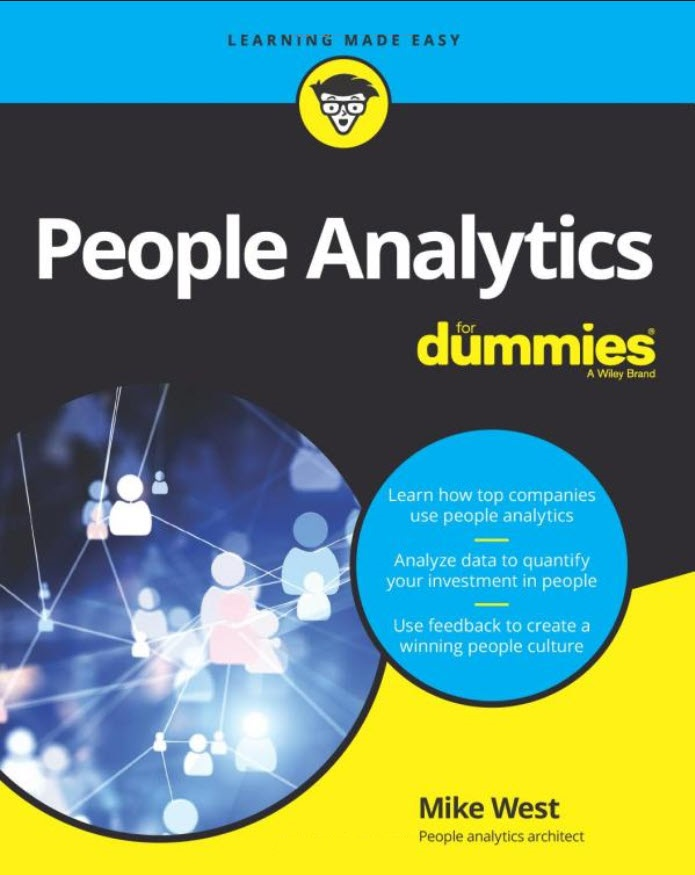
People Analytics For Dummies is a must-read for professionals new to the field or looking to learn HR analytics. Rather than tell you why people analytics is necessary, this book outlines the steps you can take to implement the function in your organization. You can learn how to use analysis to connect HR decisions to business strategy.
The book includes several hands-on examples and walkthroughs based on the author’s experiences at big and small companies. It’s helpful for those in the HR analytics function and those in the HR analytics function. Still, it will also help business leaders, analysts, business partners, and managers interested in optimizing HR-related data for better decision-making.
This book shows you how to collect HR data, analyze it, and apply your findings to create a happier and more engaged workforce.
2. Fundamentals of HR Analytics: A Manual on Becoming HR Analytical by Fermin Diez
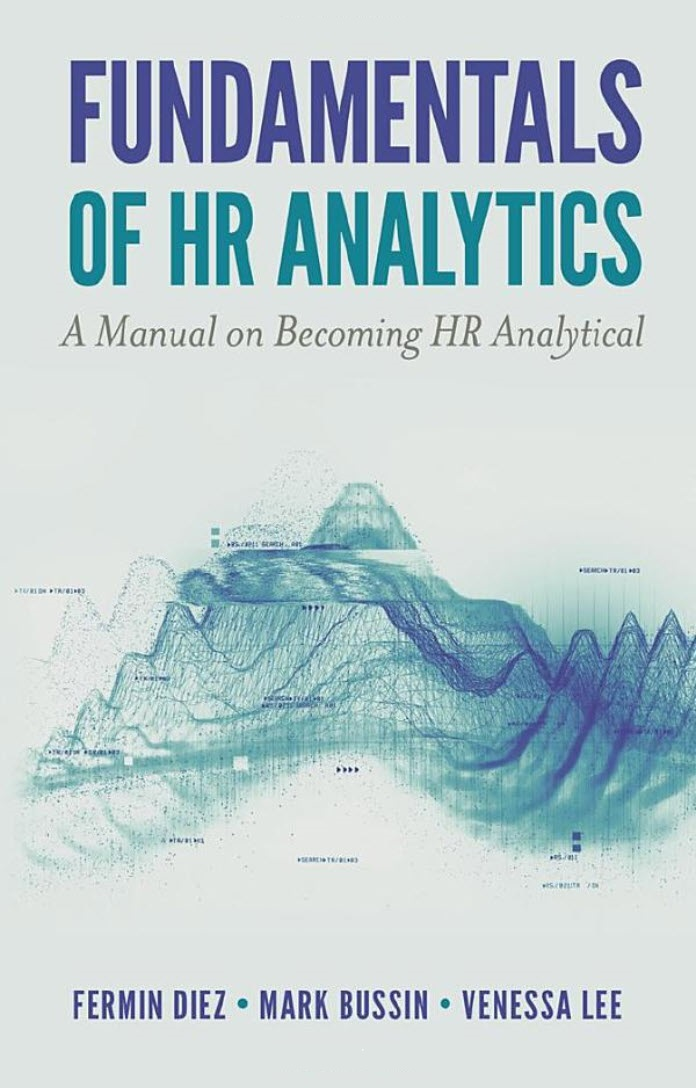
Fundamentals of HR Analytics is another must-read for HR professionals starting in HR analytics or wanting to improve their foundational knowledge in this area.
The book is split into two parts:
- Part I covers the basics of HR analytics and includes separate chapters on finance, statistics and data-analytic thinking, tools for HR analytics, data collection, and HR analytics modeling.
- Part II covers applications of HR analytics to turnover, training and development, recruitment, and compensation and benefits.
Fundamentals of HR Analytics provides hands-on strategies for connecting data with HR policies and practices to help influence overall business performance. It contains many practical examples and case studies that illustrate the use of analytics for solving organizational problems that are commonplace and challenging simultaneously. The book makes understanding and engaging with data analytics possible for professionals at all levels and is an excellent resource for those who want to learn the foundations of data-driven HR.
Best Books on General HR Analytics
In this section of the article, we will review books that cover all aspects of HR analytics.
1. Excellence in People Analytics: How to Use Workforce Data to Create Business Value by Jonathan Ferrar and David Green
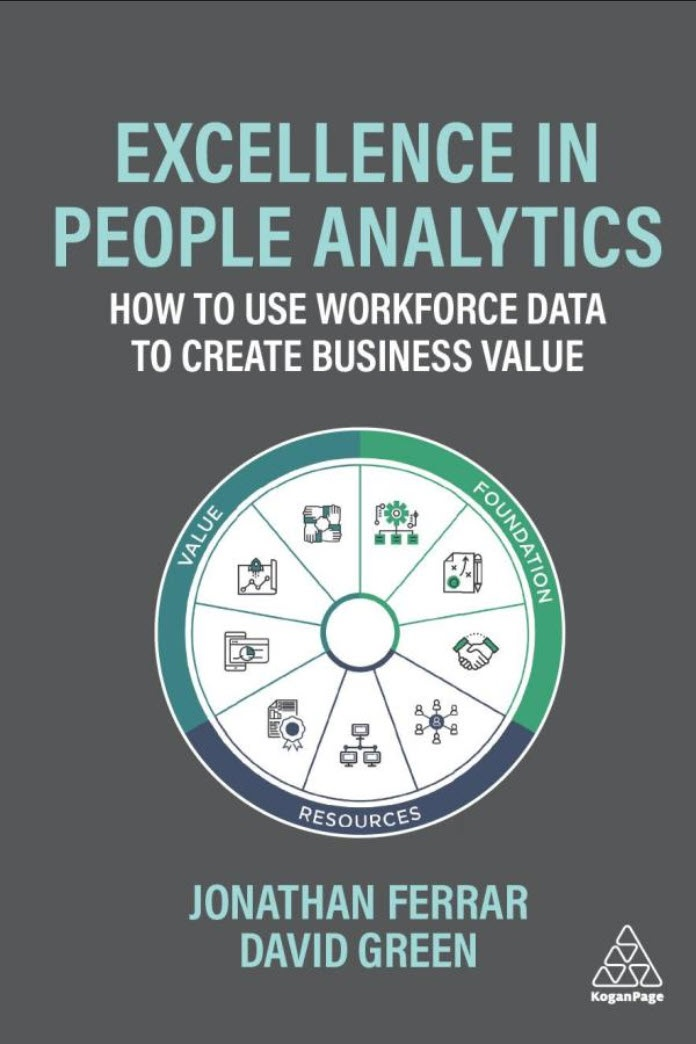
Excellence in People Analytics provides theoretical and practical insights that HR and business leaders can use to develop strategies optimized for their particular requirements.
The book has three parts:
- In Part I, the authors outline the business case for people analytics.
- In Part II, the authors present their Nine Dimensions for Excellence in People Analytics model that you can use as a structured template to drive people analytics in your company.
- In Part III, the authors discuss the future of people analytics.
Excellence in People Analytics features 30 insightful case studies from leading global companies, including Microsoft, PepsiCo, HSBC, Merck, IBM, Capital One, Nestle, Uber, ABN AMRO, and American Eagle Outfitters.
2. The Practical Guide to HR Analytics: Using Data to Inform, Transform, and Empower HR by Shonna Waters, Valerie Streets, Lindsay McFarlane, and Rachael Johnson-Murray
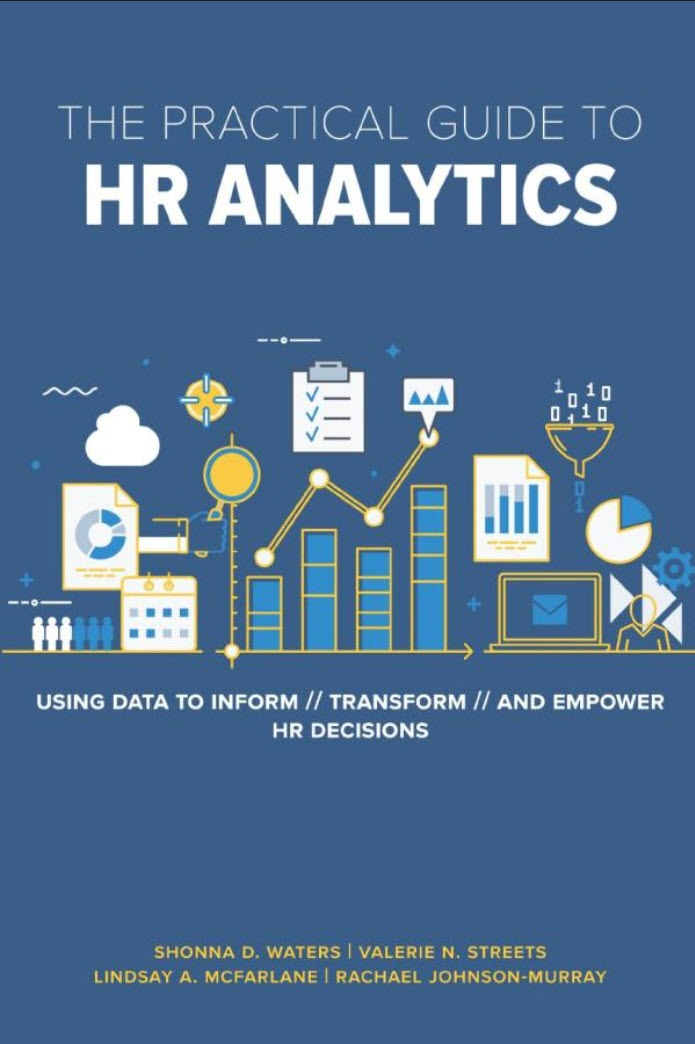
The Practical Guide to HR Analytics is an essential book for HR professionals seeking to develop an understanding of HR analytics. It is a short and easy-to-read book and provides a practical methodology for using data to solve real HR challenges.
The authors use the power of storytelling to engage and inform readers. They take readers on a journey that starts with the business challenge, moves on to the analytics domain, shows you how to establish an effective team, and guides you on using data to inform decision-making.
The authors also show you how to communicate your findings and, finally, how to evaluate the results of your efforts. A set of valuable appendices at the end of the book provides further details for each step of the journey.
3. Data-Driven HR: How to Use Analytics and Metrics to Drive Performance by Bernard Marr
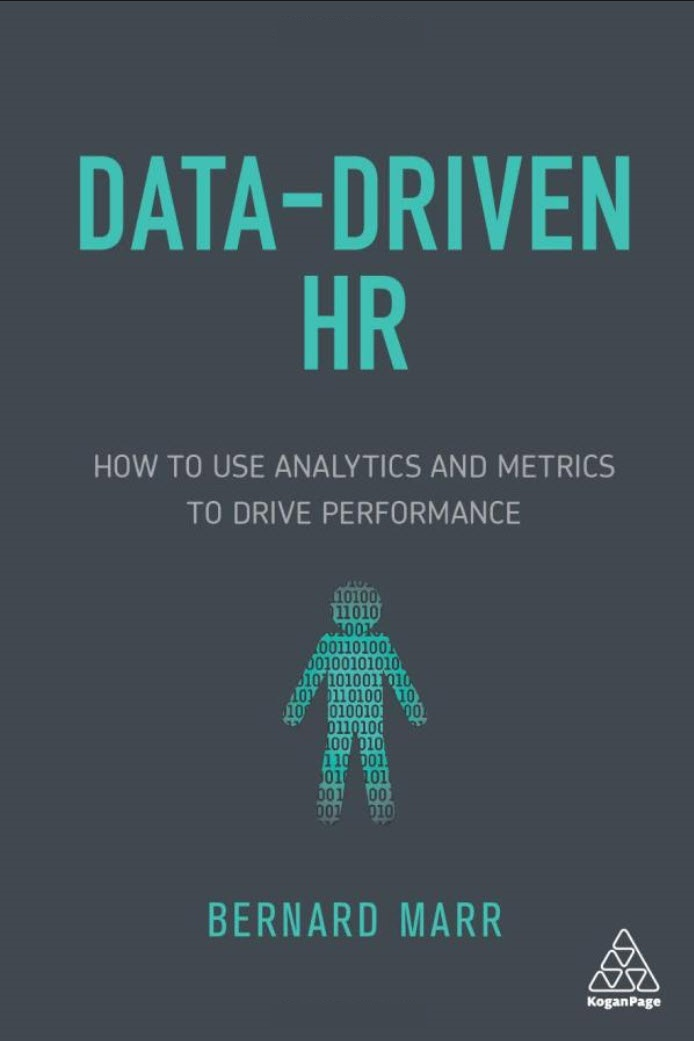
Data-driven HR is a great read for human resources professionals who want to make the HR function relevant and drive higher value to their organizations and employees. It outlines how you can leverage the vast amounts of available HR data.
The book introduces data-driven HR and proceeds to the importance of having a definite data-driven strategy for driving business value. It then helps you identify sources of relevant data and the tools you can use to derive valuable insights.
A complete chapter in the book is dedicated to potential pitfalls that include data privacy and security.
The book ends with several chapters on applications of data-driven HR that include recruitment, employee engagement, wellness, learning and development, and performance management. The last chapter looks at the future of data-driven HR.
The author’s approach of combining practical advice and case studies shows how each part fits together in realistic, real-world situations.
4. The Power of People: Learn How Successful Organizations Use Workforce Analytics To Improve Business Performance by Nigel Guenole, Jonathan Ferrar, and Sheri Feinzig
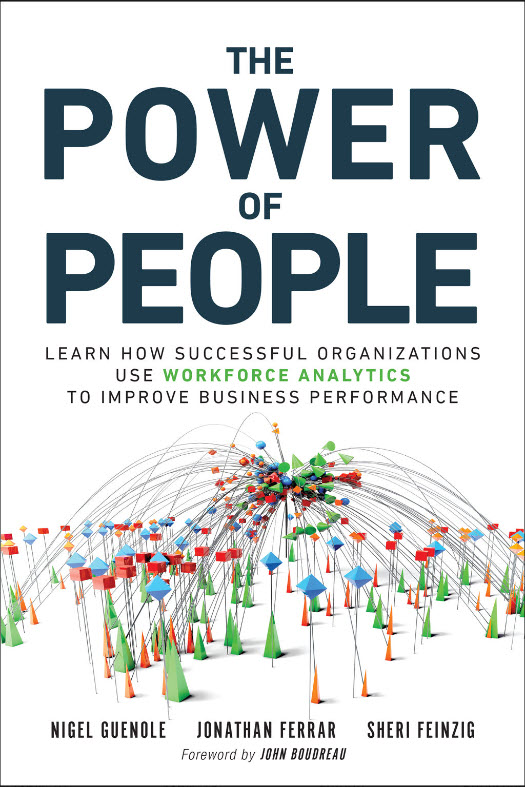
The Power of People is invaluable for HR executives aiming to establish or lead a workforce analytics project and any business executive wanting to derive higher value from HR.
The book takes a “business first” approach, which is critical for HR analytics’ sustainable results and future relevance.
The Power of People is an easy and enjoyable read and provides practical operating frameworks, conceptual models, and best practices. It also includes practical application examples and necessary caveats for preventing typical mistakes.
For senior business leaders, the book provides insights needed for understanding and actualizing the potential of HR analytics. It gives HR analytics leaders a standard for improving and evaluating organizations.
It provides guidelines for identifying the strengths and weaknesses of HR practitioners and can be used to create a professional development plan. The book is equally relevant for anyone interested in becoming an HR or people analyst.
5. Human Resource Management: People, Data, and Analytics by Talya Bauer, Berrin Erdogan, and David E. Caughlin
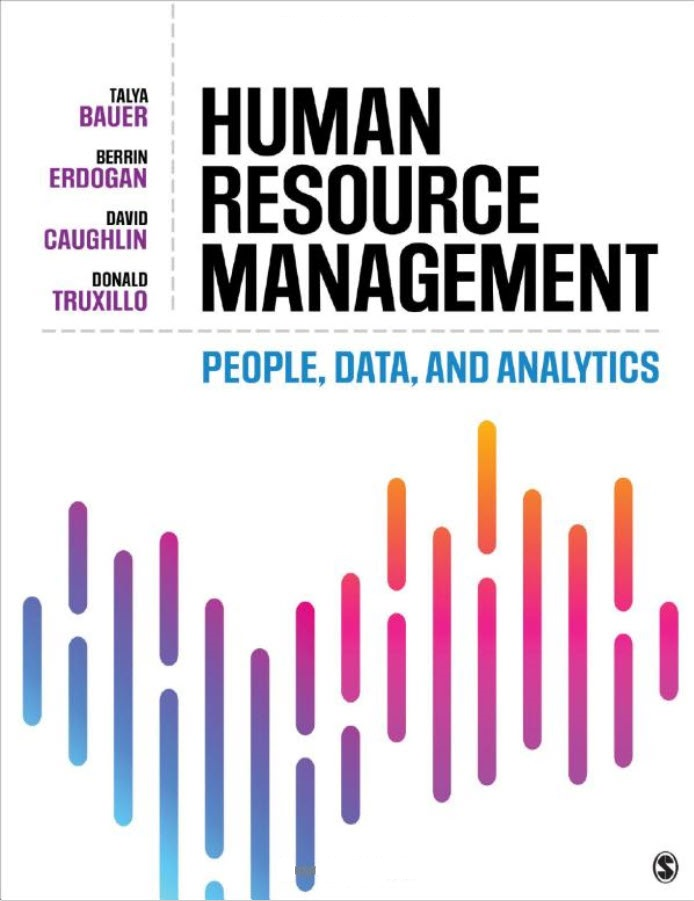
At nearly 800 pages, Human Resource Management: People, Data, and Analytics is a comprehensive book. It is primarily designed as a textbook for students but offers value to both new and experienced HR professionals.
The book provides an introduction to the fundamentals of talent management. It covers data analytics early on and explains how it can inform and support decisions. The book covers a wide spectrum of topics and starts with the importance of a formal HR strategy.
Each chapter includes charts and analytics to help the reader understand the material better. Several data exercises provide opportunities for practicing the analytical and decision-making skills professionals need in today’s job market.
Check our certified HR courses to learn more about developing and implementing a strategic HR management plan. Master HR management and how to get the best out of your employees.
Best Books on Predictive HR Analytics
Predictive HR analytics is a subdomain of HR analytics. It enables historical HR data to forecast future risks and opportunities.
1. Predictive HR Analytics: Mastering the HR Metric 2nd Edition by Dr. Martin Edwards and Kirsten Edwards
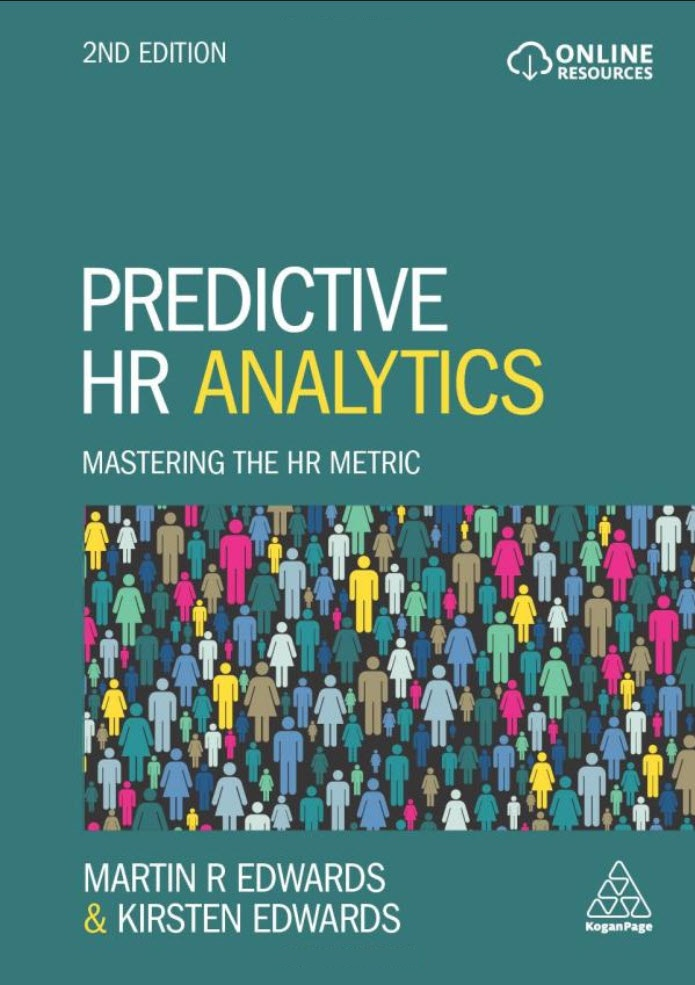
In Predictive HR Analytics, the authors explain business applications of predictive HR models. The book is aimed at a specialist audience and contains many theories.
The book begins with an introduction to predictive HR analytics, moves on to gathering data, and shows you how to convert data into a usable format. The authors then show you how to use SPSS, a software for statistical analysis, and how to use it for HR analytics. The book then covers specific use cases, which help you get a hands-on feel for performance, turnover, recruitment, and workforce engagement applications.
Readers can use sample data from the book to run their analyses and understand how different parts of the analytics approach fit together.
2. Predictive HR Analytics, Text Mining & Organizational Network Analysis with Excel by Mong Shen Ng
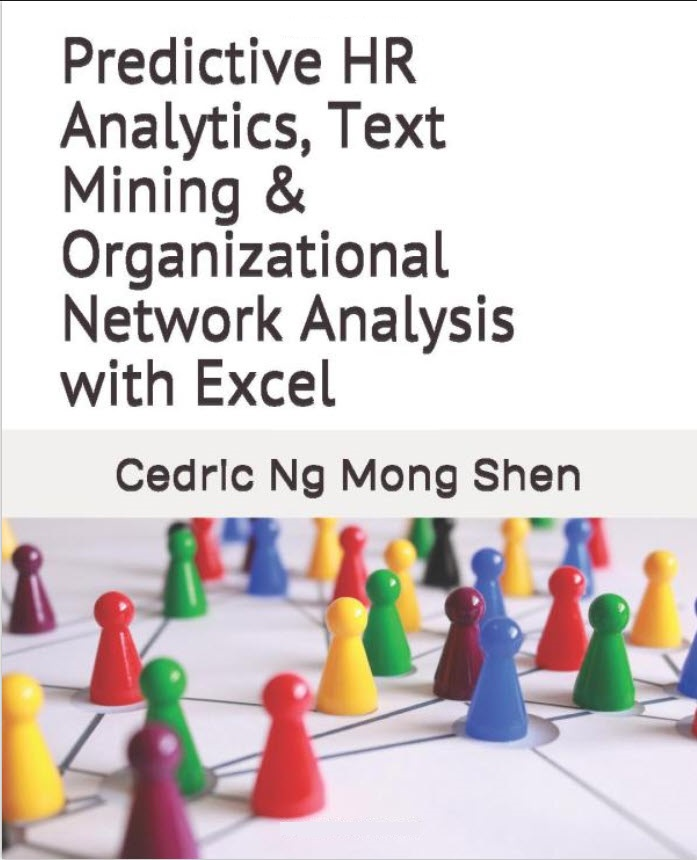
Predictive HR Analytics by Mong Shen Ng is an easy-to-read book on HR analytics. It is one of the few books – if not the only one – that teaches analytics with MS Excel. One advantage of this approach is that it reduces costs as you don’t need to invest in expensive statistical software. Another advantage is that it makes the topic of analytics and statistical analysis a lot less intimidating.
The author provides an overview of the complete HR analytic flow, from defining the business problem you want to solve to using narratives with Excel visualizations to deliver an engaging story.
The book describes a wide range of HR metrics, real-life use cases, and references to recent research publications. Step-by-step instructions are provided for several of the use cases.
The book also reviews basic statistics, machine learning approaches, and scenarios for each appropriate approach. The explanations are clear and easy to follow; even beginners will find it easy to understand them.
Best Book on Learning Analytics
This section reviews books on using HR analytics in learning and development.
Learning Analytics: Measurement Innovations to Support Employee Development by John R Mattox II, Mark Van Buren, and Jean Martin
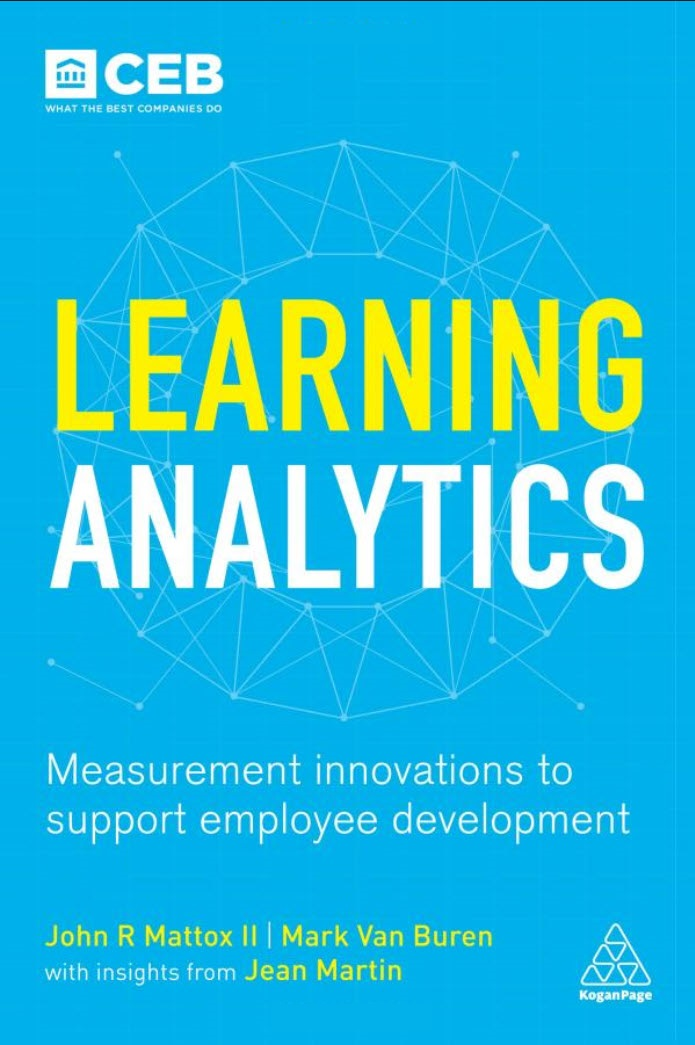
Learning Analytics uses analytics to measure and analyze the benefits of learning and development programs.
The authors begin with an explanation of learning analytics and its business needs. They also cover learning’s impact on business, the importance of a connection between training content and business needs, optimizing learning investments, and positioning learning development within talent management. Case studies from leading global companies such as Shell Oil, Hilton Hotels, and American Express help to highlight best practices and provide real-life examples of how these companies apply diverse methodologies across different industries.
The book provides a framework for understanding learning analytics. It shows HR and L&D practitioners the potential power of effective analytics for building an organization and its impact on talent management, performance, and competitive advantage.
Best Book on Talent Analytics and Workforce Planning
Talent analytics and workforce planning are two related concepts. Talent analytics uses data and statistical analysis to understand and optimize talent management processes. Workforce planning focuses on analyzing, forecasting, and planning workforce supply and demand to ensure that companies have the right people with the right skills in the right positions.
The Talent Equation: Big Data Lessons for Navigating the Skills Gap and Building a Competitive Workforce by Matt Ferguson, Lorin Hitt, Prasanna Tambe
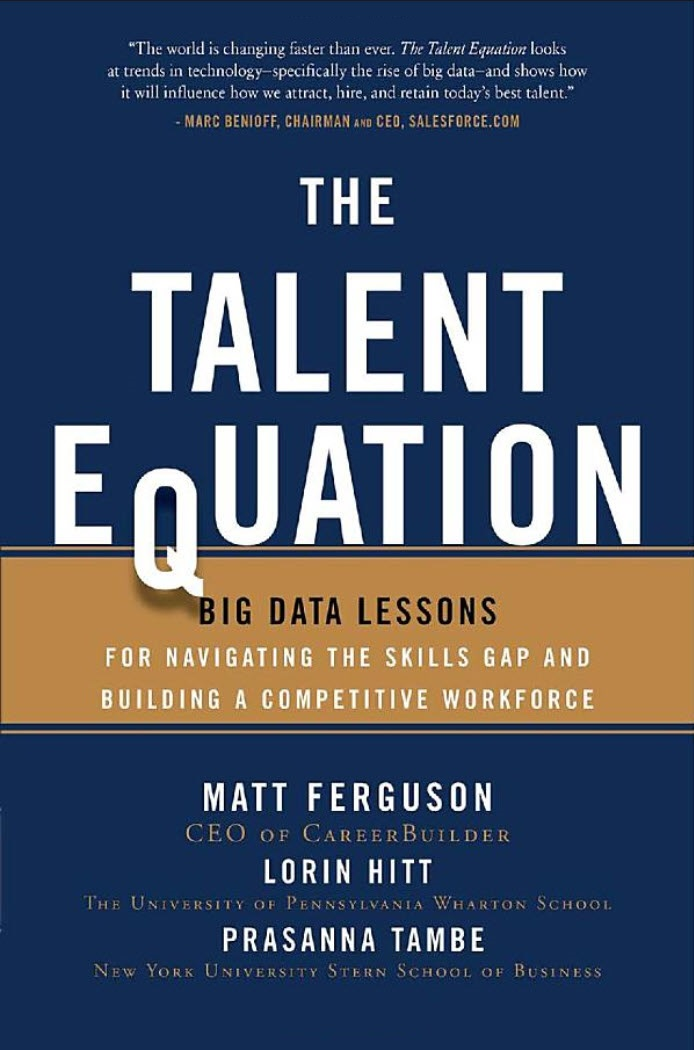
The Talent Equation collaborates with a business CEO and two talent management scholars. It focuses on helping organizations utilize data to recruit, train, and retain employees. It is an essential read for those who design and implement staffing policies.
Human capital is an organization’s most valuable resource. Yet, recruitment is a challenging task. Skills shortages, resource limitations, and outdated ways of thinking are only some of the challenges that make recruitment a significant challenge at the best of times.
HR data can often provide counterintuitive insights. Some of the insights included in the book are
- Despite considerable increases in the cost of higher education, the earnings potential of college graduates is still more significant than the costs.
- Despite the risk of “trainee flight,” employers must play a big part in training employees.
- A negative candidate experience during recruitment can hurt the company’s products and services and vice versa.
- Voluntary turnover is less of a function of economics, such as low pay, and more of a function of psychology, like job satisfaction and its constituent components, such as relationship with the supervisor, lack of growth opportunities, lack of work-life balance, and dissatisfaction with organizational culture.
The Talent Equation is valuable for two audiences. Firstly, HR managers and professionals can use it to improve recruitment methods, enhance the efficiency of the personnel department, and drive down recruitment costs. They can use internal and external data to optimize recruitment-related policy-making and decision-making.
Secondly, the book will benefit job seekers, who will learn how organizations use data for recruitment purposes.
Conclusion
The use of data allows HR practitioners to derive hidden insights with a potential for significant business impact.
Familiarity with data analytics for HR is essential for the modern HR professional. It is also important for business leaders and managers who want to optimize decision-making and base decisions on objective data.
Expertise in people analytics is essential for professionals who work in the function and help organizations collect, analyze, and evaluate HR data.
Many avenues for learning about HR analytics are available. However, a major advantage of expert books is that they offer unique insights and go into significant detail. Books are also a ready reference professionals can refer to when needed.
A curated list of the best HR analytics books can give you everything you need: a strong foundation to a general overview of the field with applications and depth in specific application areas. Use these books to learn, grow, and help others do the same.
FAQs
Here are the most frequently asked questions about HR analytics books.
What are the benefits of reading HR analytics books?
HR analytics books provide valuable insights into using data and analytics tools to optimize human resource management processes. They explain how organizations can harness data to enhance decision-making, improve employee engagement, and drive business outcomes. These resources benefit HR professionals looking to stay ahead in a competitive and data-driven world.
How do HR analytics support smart human resource management?
Books on HR analytics are essential for learning how to implement innovative human resource management practices. They guide readers on using analytics to predict workforce trends, identify talent gaps, and create actionable strategies that align HR goals with organizational objectives. These books empower HR professionals to make informed, strategic choices by bridging the gap between data and decision-making.
Can HR analytics books help with digital HR management?
Yes, HR analytics books are a great resource for mastering digital HR management. They cover topics like leveraging technology, automating HR processes, and integrating data analytics into digital platforms. These books benefit those transitioning from traditional HR methods to modern, tech-driven approaches.
What role do data and text analytics play in HR analytics?
HR analytics books often highlight the importance of data and text analytics in understanding workforce behaviors and trends. They provide examples of analyzing structured and unstructured data—such as employee feedback or social media insights—to enhance organizational culture, predict attrition rates, and improve recruitment strategies.
Are there beginner-friendly books on HR analytics?
HR analytics books provide a comprehensive guide to essential HR practices by integrating analytics into daily HR functions. They offer insights into workforce planning, talent acquisition, performance management, and employee retention, all supported by data-driven strategies. These books help HR professionals align their practices with industry standards while leveraging analytics to achieve measurable results.
Why is data-driven workforce management important, and how can HR analytics books help?
Data-driven workforce management is crucial for making informed decisions about hiring, employee development, and resource allocation. HR analytics books delve into techniques for collecting and analyzing workforce data to uncover patterns, predict outcomes, and optimize HR strategies. They empower professionals to create a proactive and efficient workforce management system that adapts to evolving organizational needs.
